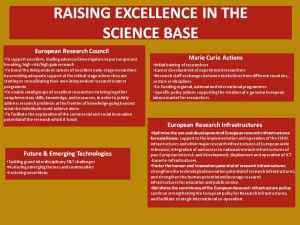 A report recently released by the EC gives facts and figures on participation in FP7, including participant patterns, proposal evaluation assessments, success rates and review times. There is also a special section on Marie Curie actions and an outline of the top university and industry partners.
A report recently released by the EC gives facts and figures on participation in FP7, including participant patterns, proposal evaluation assessments, success rates and review times. There is also a special section on Marie Curie actions and an outline of the top university and industry partners.
Highlights are that under FP7 funding 10, 524 grant agreements have been signed (involving 58, 945 participants), totalling a whopping 18.5 billion Euros.
The UK does well in FP7, representing 13 of the top 50 academic participants, featuring in the top 20 research organisations who participated and 4 of the top 50 industry partners in FP7 are from the UK. In terms of the amount of funding awarded in successful applications, the UK shows we’re not shy in asking for money, ranking second out of the 27 EU Member States.

































 New weight change BU paper
New weight change BU paper One week to go! | The 16th Annual Postgraduate Research Conference
One week to go! | The 16th Annual Postgraduate Research Conference Geography and Environmental Studies academics – would you like to get more involved in preparing our next REF submission?
Geography and Environmental Studies academics – would you like to get more involved in preparing our next REF submission? Congratulations to three former BU staff
Congratulations to three former BU staff MSCA Staff Exchanges 2024 Call – internal deadline
MSCA Staff Exchanges 2024 Call – internal deadline Applications are now open for 2025 ESRC Postdoctoral Fellowships!
Applications are now open for 2025 ESRC Postdoctoral Fellowships! Horizon Europe – ERC CoG and MSCA SE webinars
Horizon Europe – ERC CoG and MSCA SE webinars MaGMap: Mass Grave Mapping
MaGMap: Mass Grave Mapping ERC grants – series of webinars
ERC grants – series of webinars